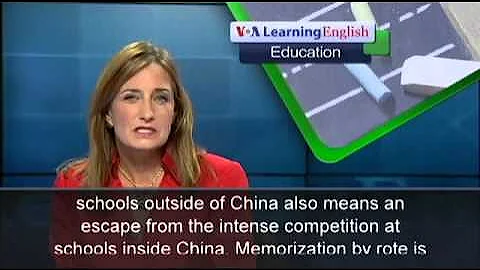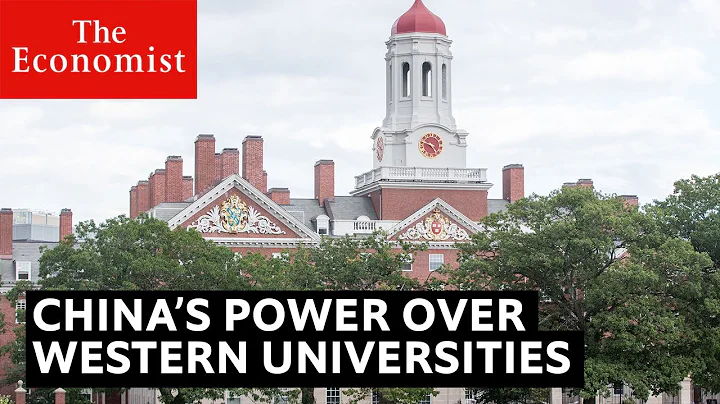At the founding ceremony of the People's Republic of China, who was standing behind Chairman Mao, Chairman of the Central People's Government of the People's Republic of China?
The first row is the six vice-chairmen of the Central People's Government of the People's Republic of China. From left to right are Zhu De, Liu Shaoqi, Soong Ching Ling, Li Jishen, Zhang Lan and Gao Gang.
The first person in the second row is Premier Zhou Enlai.
The first person in the third row is Lin Boqu, Secretary General of the Government Affairs Council.
As the No. 5 figure at the founding ceremony of the People's Republic of China, and as the deputy national leader of the newly founded New China, Li Jishen has attracted much attention at home and abroad. At that time, the remnants of the Kuomintang and the US government were shocked. They did not expect that Li Jishen could come to Beijing from Hong Kong under heavy surveillance, let alone that he could climb the Tiananmen Rostrum.

Li Jishen
Li Jishen was born in Wuzhou, Guangxi in 1885. His grandfather Li Bingguang was a scholar, and his father Li Junshang was a linsheng (a student who was provided with meals by the government during the Ming and Qing dynasties).
When his father Li Junshang unfortunately passed away, Li Jishen was only 6 years old. He entered a private school at the age of 12 and entered Wuzhou Chinese and Western School in 1902.
When he was studying at Wuzhou Chinese and Western School, one of Li Jishen's teachers later became famous and served as the chairman of the National Government. He was Hu Hanmin, who was teaching at the school and served as the chief professor (equivalent to the dean). Hu Hanmin was born in 1879, 6 years older than Li Jishen, 8 years older than Chiang Kai-shek, and 14 years older than Chairman Mao.
Li Jishen graduated from a military major and studied at the Guangdong Armed Forces Academy, the Guangdong Army Lecture School, and the Beijing Military Counselor Academy (later Army University).
When he first joined the Guangdong Army, Li Jishen met the noble person in his life - Deng Keng, the commander of the First Division of the Guangdong Army. He was deeply appreciated by him, and three months later he served as the chief of staff of the First Division Headquarters of the Guangdong Army. On March 23, 1922, Deng Keng was assassinated at Guangjiu Station. Liang Hongkai took over as the commander of the First Division, and Li Jishen remained as the chief of staff of the division.
In February 1923, Li Jishen served as the commander of the First Division of the Guangdong Army and concurrently as the chief of staff of the headquarters of the First Army of the Guangdong Army (Commander Liang Hongkai). In July 1923, Li Jishen concurrently served as the supervisor of the Xijiang Rehabilitation Supervisory Office in Guangdong. He assigned the Chen Jitang Regiment, Xu Jingtang Regiment and other units of the First Division of the Guangdong Army to attack Shen Hongying's Department, helping Huang Shaohong, Li Zongren, Bai Chongxi and other units of the New Gui Clan Group to unify Guangxi.
Bai Chongxi once said: "As a Guangxi native, Li Jishen was supported as a leader by the Guangdong generals in the Guangdong army because of his noble character and sincere way of treating others."
Li Jishen had been following Sun Yat-sen at that time and made many military exploits. Sun Yat-sen once praised: "Li Jishen is a rare general." During the training of the First Division of the Guangdong Army, Li Jishen boldly promoted and appointed outstanding young officers such as Deng Yanda and Ye Ting who graduated from the military academy. The troops with the strongest combat effectiveness and the highest quality have set off a training boom for the entire Guangdong army.
Li Jishen has made outstanding contributions to the preparation, establishment and development of Huangpu Military Academy. He withdrew 30,000 yuan in cash from the First Division of the Guangdong Army, transferred a large number of weapons to the military academy, and summoned his capable generals Qian Dajun, Yan Yan, Chen Cheng, Deng Yanda, etc. to work at the Whampoa Military Academy, which was praised by Sun Yat-sen.
On August 26, 1925, the Nationalist Government reorganized the army in Guangdong, and Li Jishen was appointed commander of the Fourth Army of the National Revolutionary Army.
On April 11, 1926, Li Jishen served as the commander of the Fourth Army of the National Revolutionary Army and concurrently as the vice president of Huangpu Military Academy. According to the fifth issue of the Whampoa Military Academy’s staff records, Li Jishen had been promoted to the rank of general at this time.
Li Jishen has a high reputation in the Kuomintang military and political circles. There is a saying that "all the armies in the country are junior students, and the famous generals in Guangdong and Guangdong are all disciples." He appointed people based on their talents, set a trap and trained a large number of generals such as Chen Keyu, Zhang Fakui, Chen Mingshu, Jiang Guangnai, Chen Jitang, Cai Tingkai, Li Hanhun, Yu Hanmou, Xue Yue, Xu Jingtang, Ye Ting and so on.
During the Northern Expedition, Li Jishen served as the Chief of General Staff of the National Revolutionary Army, the left-behind director of the National Revolutionary Army Headquarters, the Chairman of the Guangdong Branch of the Kuomintang Political Committee, and the Chairman of Guangdong Province. Two divisions of his Fourth Army and the Ye Ting Independent Regiment, led by Deputy Commander Chen Keyu, participated in the Northern Expedition and were sure to conquer and win every battle, earning the Fourth Army the honorable title of "Iron Army".
In early April 1927, Li Jishen went to Shanghai to attend the so-called party purge meeting hosted by Chiang Kai-shek. After the meeting, he returned to Guangzhou and launched the "April 15th" counter-revolutionary action. He sent troops to surround the Guangdong office of the All-China Federation of Trade Unions and the Provincial and Hong Kong Strike Committees, disarmed the workers' pickets, and sealed up revolutionary groups such as trade unions, farmers' associations, and student unions. Killed more than 2,000 communists and revolutionary masses including Deng Pei, Xiao Chunu, and Xiong Xiong.
On August 10, 1927, the Fourth Army of the National Revolutionary Army was expanded to form the Eighth Route Army of the National Revolutionary Army. The units under its jurisdiction include the Fourth Army, the Fifth Army, the Eleventh Army, and the Sixteenth Army. The commander-in-chief of the Eighth Route Army of the National Revolutionary Army was Li Jishen.
Li Jishen sent Huang Shaohong, Chen Jitang, Qian Dajun and other troops to intercept and besiege the southward troops of the Nanchang Uprising led by our party in southern Jiangxi and eastern Guangdong, causing the insurgents to suffer heavy losses.
The Eighth Route Army of the National Revolutionary Army, does it look familiar? Interrupt here.
After the outbreak of the all-out Anti-Japanese War, the Kuomintang and the Communist Party realized the second cooperation. The main Red Army units such as the First, Second and Fourth Front Army of the Chinese Workers' and Peasants' Red Army and the Northern Shaanxi Red Army were reorganized into the Eighth Route Army of the National Revolutionary Army, with jurisdiction over the 115th Division and the 120th Division. , 129th Division and Headquarters Special Agent Regiment.
The Eighth Route Army of the National Revolutionary Army was Li Jishen's unit designation. In order to break up the Guangdong-Guangxi Alliance, Chiang Kai-shek deceived Li Jishen into being imprisoned in Tangshan, Nanjing, and then disbanded the Route Army.
The designations of the three divisions 115, 120, and 129 originally belonged to Zhang Xueliang's Northeast Army. From April to June 1937, when various units of the Northeastern Army were reorganized according to the principle of reorganizing 2 divisions into 1 division, the 115th, 120th, and 129th divisions suffered consecutive defeats due to poor performance, and their designations were revoked by Chiang Kai-shek one after another. Give these three designations to the three divisions of the Red Army.
No one would have thought that the 115th Division, the 120th Division and the 129th Division, which were once defeated, would later become majestic divisions with brilliant results, repeated feats and great prestige under the command of Lin Biao, He Long, Liu Bocheng and others. The powerful force has become a famous name in the history of Chinese and foreign military affairs.
In March 1929, in order to mediate the conflict between Chiang Kai-shek and Li Zongren of the Guangxi faction, Li Jishen went to Nanjing to persuade Chiang not to fight a civil war. On the 15th, Chiang Kai-shek detained Li Jishen under the pretext that he was in a group with Li Zongren and Bai Chongxi, placed him under house arrest in Tangshan, Nanjing, and relieved him of all his duties.
After the "918" incident in 1931, Li Jishen gained his freedom and embarked on the road of democracy to fight against Chiang Kai-shek and Japan.
In 1940, Li Jishen was appointed by Chiang Kai-shek as the director of the Guilin General Office of the Military Commission of the National Government. This is because the commanders of several war zones south of the Yangtze River, such as Xue Yue stationed in Changsha, Yu Hanmou stationed in Shaoguan, and Zhang Fakui stationed in Liuzhou, were all generals from the Fourth Army of the Northern Expedition. Chiang Kai-shek wanted to rely on Li Jishen, the "old commander" "(Li Jishen once served as the commander of the Fourth Army of the Northern Expeditionary Army) was in the middle to mediate.
At this time, although Li Jishen was the highest official in Guilin, he had positions but no power. Chiang Kai-shek also placed many spies around Li Jishen to monitor his actions.
After the victory of the Anti-Japanese War, Chiang Kai-shek invited Li Jishen to Lushan three times in July 1946. Li Jishen urged Chiang Kai-shek to stop the civil war, but Chiang Kai-shek would not listen.
Li Jishen was completely desperate for Chiang Kai-shek.

On March 9, 1947, Li Jishen secretly left Shanghai and came to Hong Kong, and published his "Opinions on the Current Situation", calling on "everyone who has a sense of responsibility for the country" within the Kuomintang to stand up bravely and "correct the reactionaries within the party." wrong policy."
On January 1, 1948, the Revolutionary Committee of the Chinese Kuomintang was formally established. It elected Song Qingling as the honorary chairman, Li Jishen as the chairman, and He Xiangning, Feng Yuxiang, Li Zhangda, Tan Pingshan and others as the Central Standing Committee. It issued a founding declaration advocating the overthrow of the Kuomintang's dictatorship. Achieve independence, democracy and peace in China.
At the beginning of its establishment, the Chinese Kuomintang Revolutionary Committee developed more than 300 secret party members within the Kuomintang's party, government and military.
Chiang Kai-shek hated Li Ji deeply. Li Xiaotong, Li Jishen’s daughter who spent the longest time with Li Jishen after liberation, once recalled, “Since 1947, Chiang Kai-shek organized people to assassinate my father several times.The one assassination attempt I witnessed on my father was in 1952. Agents came with gasoline and set fire to the house. I was living in the house. The guards and public security officers came at that time, but unfortunately, the spy was not caught. "
In the autumn of 1948, the Central Committee of the Communist Party of China invited democrats in Hong Kong to attend the new CPPCC meeting and the coalition government in the liberated areas. Among the invitees, Li Jishen ranked first. In December of the same year, he, Li Jishen and others left Hong Kong and took a boat to go north to participate in the China Preparatory work for the People's Political Consultative Conference.
On September 30, 1949, Li Jishen was elected as Vice Chairman of the Central People's Government of the People's Republic of China and Vice Chairman of the First National Committee of the Chinese People's Political Consultative Conference. On the next day, he attended the founding ceremony of New China.
1954. Li Jishen was elected as the Vice Chairman of the Standing Committee of the National People's Congress.
Li Jishen has many close friends and confidants in the literary and art circles, such as painters Chen Banding, Qi Baishi, Xu Beihong, Peking opera performing artists Mei Lanfang and Cheng Yanqiu, drama performer Hongxiannu, and Han opera actor Chen Bohua. , Chen Juanjuan, Xia Meng in the film industry... Li Jishen invited them to his home every National Day, and the scene was very lively.
Chairman Mao even joked about this with Li Jishen. Once, Chairman Mao and Li Jishen were reviewing on the Tiananmen Gate Tower. The workers, peasants and soldiers passed, followed closely by the team from the literary and artistic circles. Chairman Mao said to Li Jishen: Look, your team is here. Li Jishen smiled and replied: This is still your team.

1956, Mao Zedong and Vice Chairman Li Jishen shook hands.
1959 In October, Li Jishen died of illness in Beijing at the age of 74.
Li Jishen had two wives, named Shuang Xiuqing and Zhou Yueqing. He had 7 sons and 9 daughters.
Among his children, his son Li Peiyao's status was very strict. The highest, like his father, he was promoted to deputy state level, but his fate was the worst.
Li Peiyao was born in 1933. He graduated from the Aircraft Manufacturing Department of Beijing Institute of Aeronautics and Astronautics. He was the vice-chairman of the 7th Central Committee of the Kuomintang. In 1989, he was appointed as the Ministry of Labor of the People's Republic of China. Minister, he was elected Chairman of the Eighth Central Committee of the Kuomintang in 1992, and Vice Chairman of the Standing Committee of the Eighth National People's Congress in March 1993.
On February 2, 1996, Li Peiyao was killed by his guard Zhang Jinlong. He was 63 years old. .
The perpetrator, Zhang Jinlong, joined the army in December 1994 and began to go on duty at Li Peiyao's residence in March 1995. At about 4 o'clock on February 2, 1996, Zhang Jinlong took advantage of the opportunity to sneak into Li Peiyao's house and steal. He woke up Li Peiyao and was attacked by Li Peiyao. Zhang Jinlong saw that the incident had been exposed and quickly took out two kitchen knives from Li Peiyao's kitchen to fight with him and took the knife to defend himself, but was eventually killed by Zhang Jinlong
After the incident, Zhang Jinlong surrendered. Later investigation found that Zhang Jinlong was punished by the public security organs twice for stealing bicycles in February and March 1994. During the registration period, his father gave 3,000 yuan to the deputy director of the Ministry of Human Resources and Armed Forces Office. The deputy director told the Minister of Human Resources and Armed Forces. He falsely claimed that Zhang had passed the political examination and the Minister of Human Resources and Military Affairs agreed to arrange a physical examination. Zhang’s father also asked the head teacher of Zhang Jinlong Junior High School for help. Zhang Jinlong’s “high school diploma” was altered by altering someone else’s diploma.
On May 2, 1996, Zhang Jinlong was sentenced to death and executed by firing squad. The deputy director of the Ministry of Human Resources and Armed Forces Office, the Municipal People's Armed Forces Minister, the police station staff, and Zhang Jinlong's father were also held criminally responsible. (Liu Jixing)





















